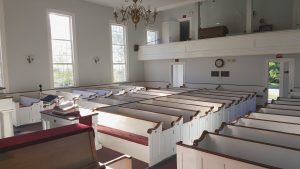
According to a recent Pew Research Center Report clergy and other religious leaders are not as trusted to act in the best interest of the public as are many other groups. More specifically, the percentage of American adults who say they have either “a great deal” or “a fair amount” of confidence that a group will act in the interest of the public follows:
- Medical Scientists – 84%
- Military – 79%
- Scientists – 76%
- K-12 Principals and Superintendents – 66%
- Religious Leaders – 52%
Troubling Trend
Public perception of religious leaders has been declining for some time. For example, a Gallup poll shows that the percentage of American adults who rate the “honesty and ethical standards” of clergy as high or very high has dropped from 67% in the mid-1980s to 47% in 2013.
So What?
As someone who has spent most of my adult life in religious leadership, I have experienced this shift firsthand. I have found that the decline in trust that clergy and other religious leaders will act in the public’s best interest and demonstrate high levels of honesty and live according to their ethical standards is more pronounced among the youngest generations.
On the other hand, I have found that this new world in which we find ourselves is filled with opportunities. While many have less and less confidence in religious leaders as a group, many remain open to forming opinions about specific religious leaders that are positive.
- Describe the change in public perception of clergy and other religious leaders in America during your lifetime (try to do this in a single sentence).
- Compare and contrast your view of the pastor/minister/priest or other religious leader you know best with how you think of all American religious leaders.
- Do you expect American perceptions of clergy and other religious leaders to continue to decline? Explain why or why not.